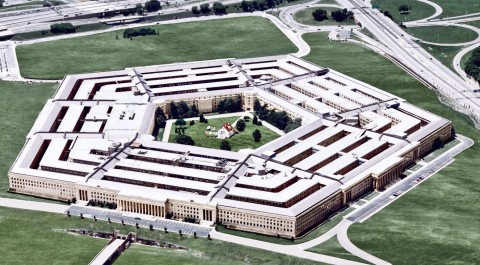.
“(A) a comprehensive strategy and plans for the defeat of ISIS;
(B) recommended changes to any United States rules of engagement and other United States policy restrictions that exceed the requirements of international law regarding the use of force against ISIS;
(C) public diplomacy, information operations, and cyber strategies to isolate and delegitimize ISIS and its radical Islamist ideology;
(D) identification of new coalition partners in the fight against ISIS and policies to empower coalition partners to fight ISIS and its affiliates;
(E) mechanisms to cut off or seize ISIS’s financial support, including financial transfers, money laundering, oil revenue, human trafficking, sales of looted art and historical artifacts, and other revenue sources; and
(F) a detailed strategy to robustly fund the Plan.”
.
Point (B), for example ... if you ask a U.S. Servicemember what is the key to defeating ISIS, the first thing he'll say -- guaranteed -- is that he needs harder rules of engagement. Hence the language of point (B) above. U.S. Soldiers say again and again that their hands have been tied. No swipe against previous years intended; it's just an illustration of the way that civilian (Presidential) attitudes can bring impactful changes to the way the military does business.
As we discussed in the other thread, there is also the question of engaging governments on non-military levels -- of supporting their good guys and discouraging their bad guys. But Trump's EO spells out the fundamentals of what Mattis would do.
How effective will it be? Good question.
....
It would make a good Konspiracy Korner to discuss each Executive Order, probably (though we don't want to wear people out). The language of an EO can serve as a primer on an issue.
Respectfully,
Jeff
